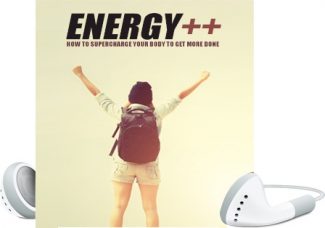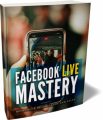 License Type: Master Resell Rights
License Type: Master Resell Rights  File Type: ZIP
File Type: ZIP
 SKU: 64014
SKU: 64014  Shipping: Online Download
Shipping: Online Download
Sample Content Preview
How to Have the Ultimate Productive Day by Supercharging Your Energy Levels
If you read lifestyle, health and tech blogs, then you’ll find that there is really no shortage of advice out there when it comes to increasing your productivity and getting more done in a day. Of course not all of that advice is equally useful but nevertheless, if you know where to look, then you should have not problem finding ideas that can help you out.
The question is then: what nwould happen if you were to take all those most effective tips and strategies and combine them on one single day? Could you create yourself an optimal state of mind and an optimal environment for getting the most work done possible? And what would that look like?
In this short guide, we’re going to look at what happens when you do everything right and when you take all the best advice for boosting your energy levels and improving productivity. At the same time, we’ll be incorporating some slightly more advanced stuff and high-level tips that you won’t come across in your typical productivity blog.
Follow this blueprint for the most productive, focussed and high-energy day ever.
Energy is the Key
Make no mistake though; energy is very much the key here. Your productivity is predicated on you being able to not only increase your energy levels but also anticipate them and work with them in order to ensure that you’re raring to go when you need to be and able to unwind and relax when you need to as well.
And this is a big change of pace for many people, as far too many of us will take energy for granted.
We think an awful lot about time management but very often we completely overlook energy management.
But if you sit down at the desk to work and you feel completely exhausted and overworked from the day before. If you feel like you didn’t get enough sleep, or your body is fighting off the remains of a cold… well then you’re not going to find yourself motivated enough to get productive. So the best tips to follow for that ‘most productive day ever’ are the ones that focus on energy primarily.
The Day Before…
To be highly productive tomorrow, you need to start getting things into place today. This is very important to recognize as your energy levels and focus on any given day are very often the result of cumulative results from the days that preceded it.
The first thing you need to do today in order to be more productive tomorrow then, is to leave a bit of work unfinished.
This might come as a big surprise and seem counterintuitive; but actually, leaving work incomplete is a great way to encourage yourself to work harder tomorrow. The simple reason for this is that we don’t like leaving things unfinished. You’ll be driven by an unconscious urge to complete the task you half-finished tomorrow and this will help you to dive back into ‘work mode’.
And of course the other thing you need to do is to get the best possible night’s sleep. This is going to help you to wake up feeling as good as you possibly can tomorrow and it’s actually far more important than any other aspect of your routine. If you want to perform your best, then getting better sleep is the single best upgrade that you can possibly benefit from.
So how are you going to make sure you get the best night’s sleep?
First: make sure that you take a good half-an-hour-to-an-hour of downtime before you hit the sack. The big mistake that too many of us make, is to work incredibly hard all day, then to come home and watch loud TV or play computer games while checking our phone.
This is devastating for our ability to sleep. All that action on the screen stresses out the brain and makes it more active and alert. Meanwhile, the light is interpreted by our limbic system as being daylight, meaning that we feel more awake and our brain will be flooded with cortisol.
But if you take half an hour to unwind and settle down, then the low-light that comes from outside or from a small, orange, desk-lamp, will help your brain to realize it’s bed time. Meanwhile, concentrating on something to read for example, will prevent your mind from wandering and help you to get into an almost meditative, restful state. Reading also has the considerable advantage of making our eyes tired as we strain to read the text. This causes them to feel heavy and eventually it will be hard to keep them open!
Doing all this will ensure you get to sleep much faster and when you do sleep, you’ll sleep more deeply. At the very least, try to avoid keeping your phone in the room with you when you sleep.
Second: make sure your environment is dark, comfy and quiet. This should go without saying but it’s something that many people don’t take seriously enough. If your room is flooded with light from a nearby streetlamp or if you can hear the neighbors entertaining their guests, then you won’t sleep as well and you’ll feel it tomorrow. At the very least, you should try to cover up bright LEDs (another reason to charge your phone in another room!).
Finally: get your temperature right! Your room should be slightly cool when you’re sleeping so you have to stay under the covers for warmth. And while you’re at it, consider taking a nice warm bath before bed. This will relax your muscles and help you to regulate your body temperature throughout the night.
Wakey, Wakey…
Here’s one more tip for sleeping, this time dealing with the way you wake up: get yourself a ‘daylight lamp’. These are lamps that are designed to create a wavelength that is purposefully similar to that of the sun. Better yet, they will get brighter gradually in the morning before the alarm sounds. What this does is to gently stir you out of deep sleep by making the environment seem to get slowly brighter. This means that when the alarm does sound, you will be in REM sleep rather than SWS (Slow Wave Sleep). That in turn means you’ll feel much less groggy.
Better yet, you’ll be waking up into a bright room – which makes a huge psychological difference and makes it much easier to get up and get going!
To Coffee or Not to Coffee
So if we’re trying to do everything right and boost our energy levels as much as possible for the day ahead, the next question is whether or not we should drink coffee.
And the answer? Kind of.
When you drink caffeein, this helps the brain to feel more awake by blocking the effects of adenosine. Adenosine is a by-product of the energy process in the brain. When the cells utilize glucose and ATP to help us go about our daily activities, they create adenosine as a by-product. Unfortunately, this by-product then dampens activity of the cells, making us feel groggy and sleepy. This is why we get tireder and tireder throughout the day, until we eventually fall asleep and the brain is able to flush itself of the substance.
Except it isn’t all gone in the morning and this is one of the reasons that you’ll often experience sleep-inertia and still feel tired when you first wake up.
Caffeine mimicks adenosine and this means that the brain ‘mistakes’ it for that by-product. Caffeine therefore is able to bind to the adenosine receptors, which prevents adenosine from working.
Hence, you wake up.
So that’s a good thing right?
Sure, but it’s not the only factor to consider.
For one, blocking adenosine and waking the brain up artificially causes a surprising amount of activity across the brain. Our body finds this unusual and so it responds by releasing more stress hormones – thinking that we must be doing something very important, or that we might even be under attack!
Hence we produce adrenaline (norepinephrine), cortisol and more. Caffeine in that regard is ‘stress in a cup’ and stress is not good for our energy levels.
The other issue with caffeine is that the brain can adapt to it. When you have low adenosine activity in your brain for long enough, it can respond by trying to upregulate it. That means it will increase the number of adenosine receptors, meaning that you now need more caffeine in order to block them. It also means that when you don’t get caffeine, you can feel even more tired – which is why caffeine is addictive. This can even cause headaches via caffeine withdrawal.
So should you drink caffeine or not?
A good compromise is to drink a little caffeine and to time it right throughout the day. Morning is a good option, especially if you take weekends off.
- License: Master Resell Rights
- Category:Ebooks
- Tags:2021 Ebooks With Audio Master Resale Rights








